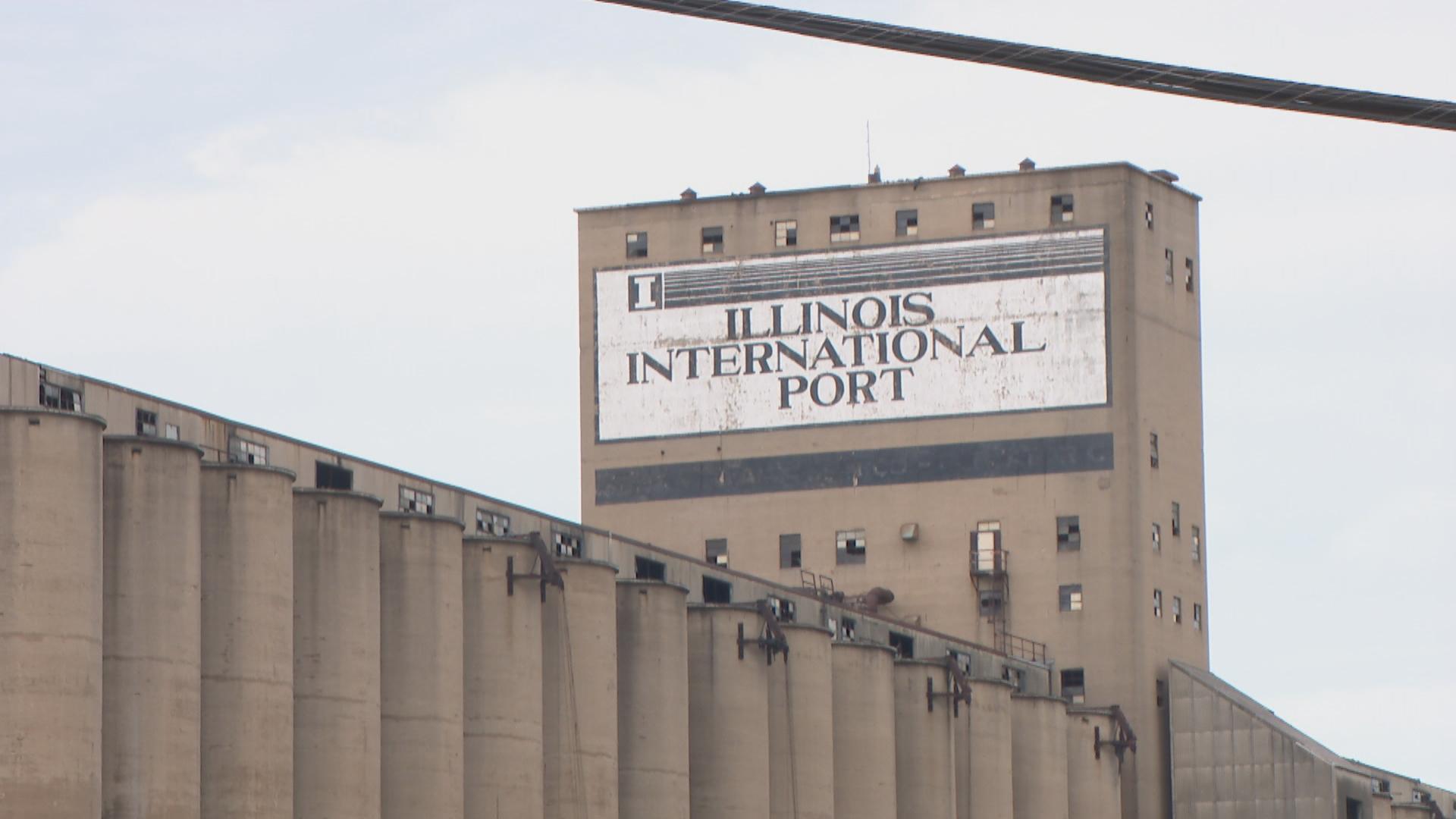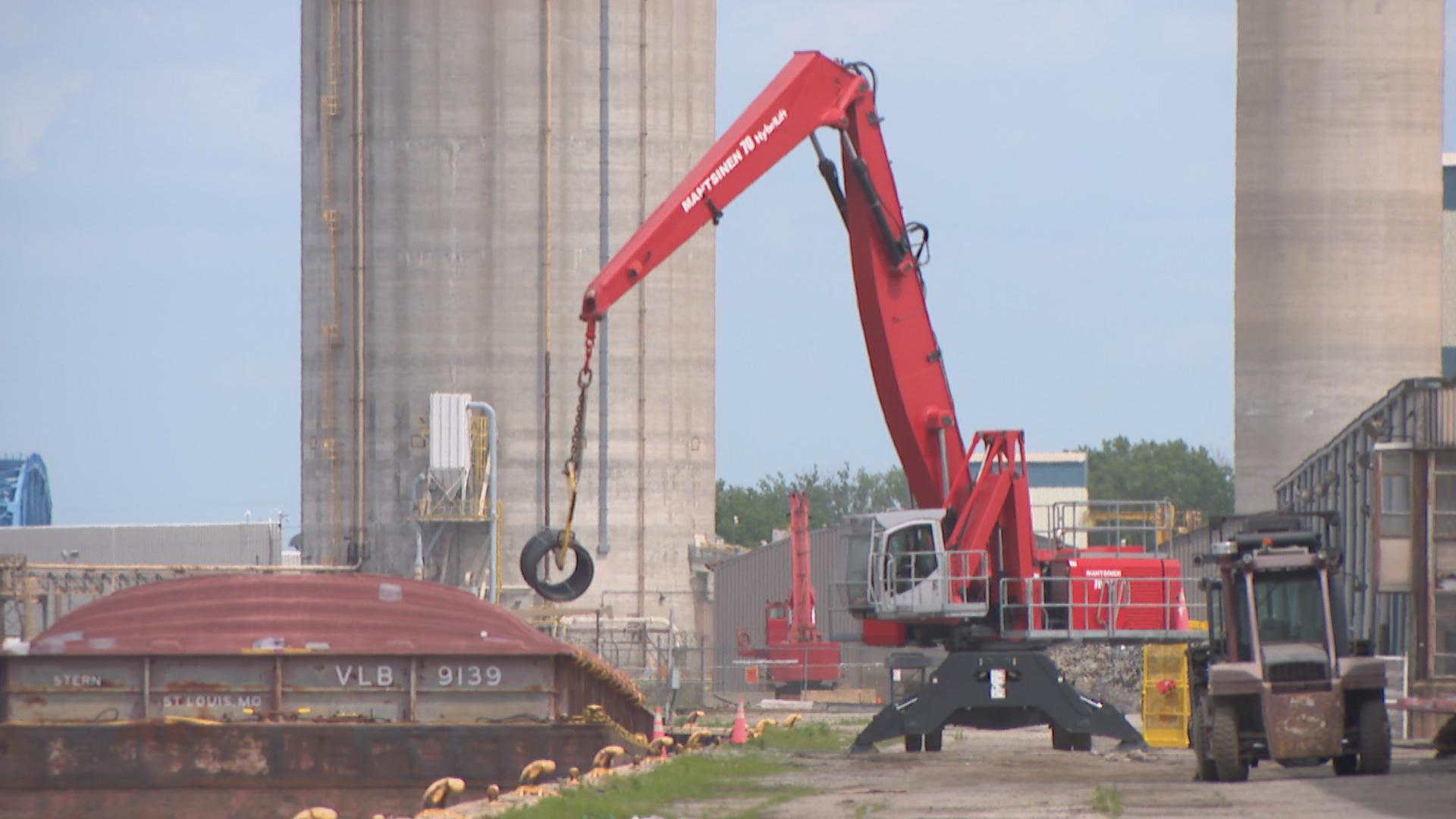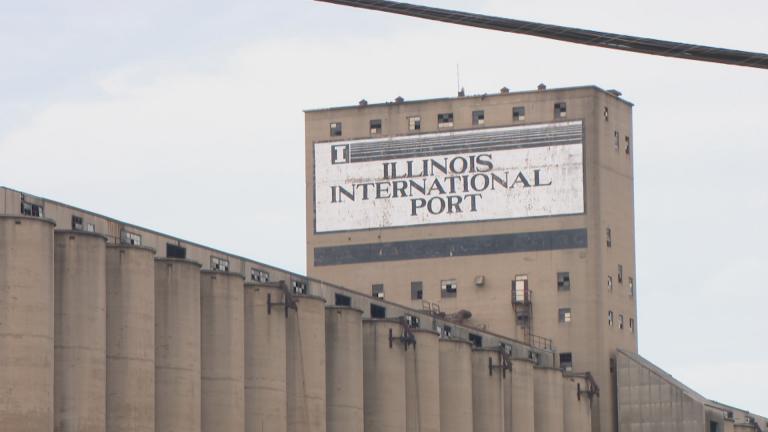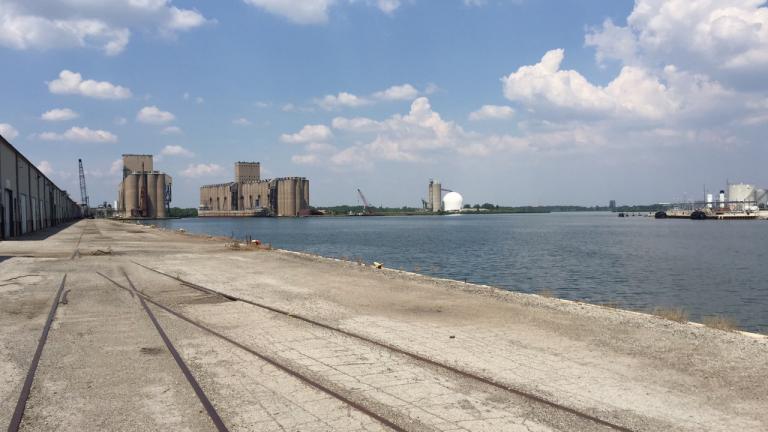Privatization of public assets is a controversial topic in Chicago. Consider: the Chicago parking meter deal, the Chicago Skyway.
A few years ago, a deal to get a private operator to take over the massive but little-used Port of Chicago fell through. But WTTW News has learned another public-private partnership proposal is in the works for the massive Southeast Side shipping docks. And supporters say that a little bit of investment in the sinking port could lift the entire region.
We visited the Port of Chicago – officially called the Illinois International Port District – on a recent Friday afternoon and saw a steady stream of activity.
The port is located on the city’s Southeast Side, at 95th Street and the lakefront. It might be underutilized, but Executive Director Clayton Harris III says the port is brimming with potential as a major point of transit between the Saint Lawrence Seaway and the Mississippi River.
“We have all of the Class 1 railroads that come through here, two waterway systems, five interstate systems within 10 miles,” Harris said. “So this is where you want to be if you want to bring in commodities to the Midwest.”

Harris was brought in three years ago to run an agency perennially in debt, with infrastructure falling into disrepair, that was losing business to nearby Burns Harbor in Indiana. Harris says cruise lines reluctantly dock here, because they have nowhere else to go.
“We’re in conversations with the cruise industry on how we can make it more attractive to land at the port and shuttle people downtown,” Harris said.
And a new Illinois capital bill signed by Gov. J.B. Pritzker could help that effort – though Harris says there are other priorities for the estimated $60 million coming his way. Namely, fixing badly damaged roads; upgrading dilapidated storage facilities; and filling a sinkhole the size of a Volkswagen van on the main landing.
“We had to get our financial house in order when I first got here, and the General Assembly took note,” Harris said. “They bought into the vision of the port and really have invested in it.”
Harris’s vision is expansive. He wants to repurpose old and vacant grain silos, fill the empty acres with wind and solar farms, and expand the shipping business. Right now, the port takes in mainly lumber and steel. There are hardly any shipping containers because the port can’t handle them. He says that needs to change.
Also on the to-do list: renegotiating a 65-year lease contract with Kinder Morgan. Harris says that alone could boost revenue at the port by more than a third.
The port is entirely self-contained. It doesn’t take tax money and brings in about $5 million a year. The biggest revenue generator has nothing to do with shipping or storage; it’s a links-style public golf course called Harborside.

Civic Federation watchdog Laurence Msall says the port’s board of directors – five appointed by the mayor and four by the governor – should be disbanded and the land should be returned to the public. He says the port is a bad public investment.
“There isn’t a need to have a paid board of directors that is non-responsive to the neighborhood and public, but to themselves,” Msall said. “The authority has never been transparent and shown any public analysis that the investment in the port authority should be done over other transportation over there.”
But transit and infrastructure expert P.S. Sriraj, who heads up the Urban Transportation Institute at the University of Illinois at Chicago, says the inland waterways system could steal business away from rail and highway if the right investments are made.
“The inland waterways has tremendous potential,” Sriraj said. “That’s been acknowledged and recognized by the federal government. The biggest challenge is the competition with highway and rail because of the speed they offer.”
Perhaps a private operator could do the job better. Six years ago, a public-private partnership with a company called Broe fell through. But WTTW News has learned that the port’s board is negotiating a new deal to have a private company to manage the facility and invest between $75 and $100 million in upgrades. In return, the private company would keep most of the profits for a set number of years.
10th Ward Ald. Susan Sadlowski Garza says she opposes any deal to privatize or bring in a private operator.
“I’m hoping beyond hope that the deal to privatize the port is defunct. I have good notion to believe it’s not going to happen,” Garza said, noting that the city has had bad deals with private operators, and says the state and city should invest more public money.
“We’re sitting on an international port that by any means could be a goldmine for the city of Chicago as well as the state,” she said.

Harris says that a little bit of investment – no matter where it comes from – could go a long way.
“It’s not just about what’s good for the port, it’s what’s good for Pullman, Hegewisch, Altgeld Gardens, Cook County, Illinois, Indiana and beyond. Our reach is truly international,” Harris said.
Whether or not shipping companies see the potential as well, and choose to deliver goods by water instead of rail or highway, remains to be seen.
The port is the largest manufacturing district in the city of Chicago. The board meets Friday to potentially take up the new deal.
Follow Paris Schutz on Twitter: @paschutz
Related:
Port of Chicago Privatization Plan Draws Critics




